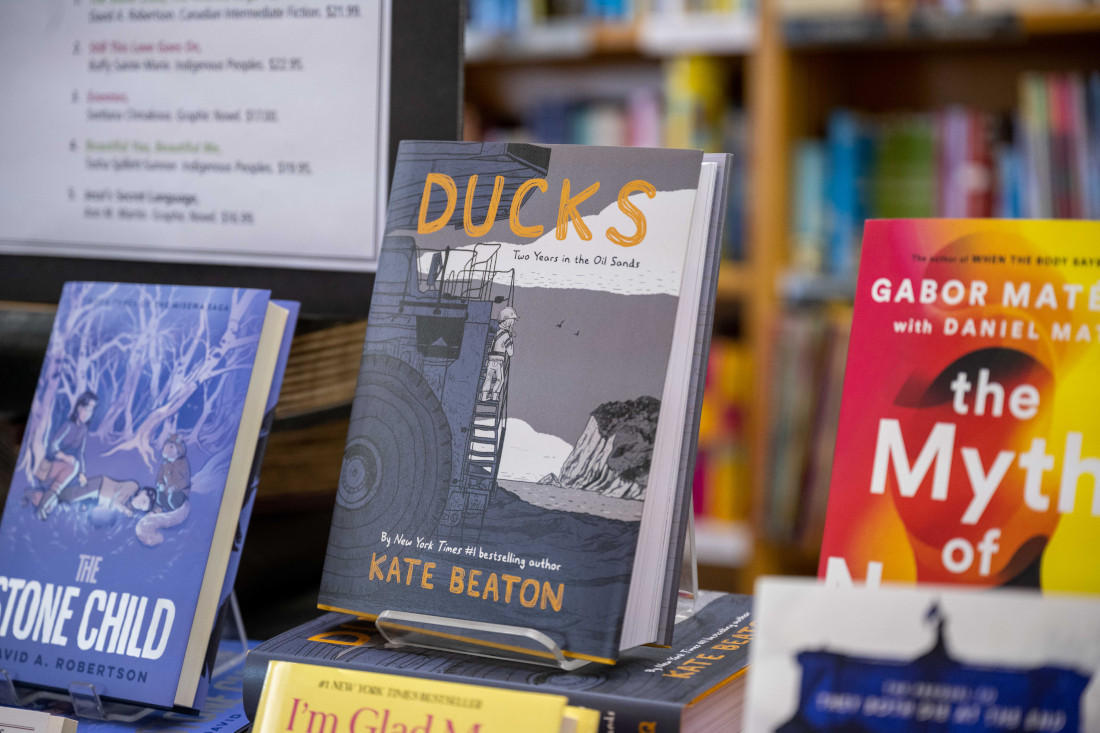Kate Beaton remembers the oil sands
Ducks highlights the human element of resource exploitation
Over the past 30 years, independent comics have been steadily picking up momentum in Canada. Montreal’s Drawn and Quarterly has been putting out high-quality independent comics since the 1990s, and new publishers like Highwater Press in Winnipeg or Arsenal Pulp in Vancouver are showcasing diverse and exciting new creators. The medium is becoming increasingly popular for both Canadian artists and consumers.
Kate Beaton’s new graphic memoir Ducks: Two Years in the Oil Sands has quickly made its place as a vital part of this new Canadian canon.
The coming-of-age epic details Beaton’s experiences while working as a then-recent university grad in the Alberta oil sands in 2005 to pay off her student debt.
At the time, Beaton posted webcomics about these experiences but took them down, feeling she “had to grow as an artist and storyteller first.”
Critically, Ducks takes place 15 years ago and is less about current conversations regarding the oils sands. Instead, the book is a time capsule representing the issues as they were to Beaton.
“We think about (the issues) differently (now). We care about them differently. Definitely so for gender and the environment. Less so for class,” Beaton says. “For the book, I still had to present it as an artifact of its time, not imbue it with the thoughts and feelings of right now.”
Despite being about the past, Ducks adds to the ongoing national conversation surrounding the oil sands. Specifically, the book brings to light oft-overlooked perspectives such as the experience of women labourers, usually clerks or secretaries, as well as individuals from the Maritimes who have left home due to the collapse of the fishing and coal industries.
“I don’t think there are that many portraits of the oil sands coming from workers, not in popular culture,” Beaton says.
Dr. Candida Rifkind, an English professor and comic-studies scholar, emphasizes that Ducks’ strength is not just its narrative but how it uses the comics medium.
“Comics are a complicated media. You have to pay attention to both the visuals, the words, how the two work together,” Rifkind says.
Rifkind argues that Beaton’s expressive cartooning allows her to engage with heavy subject matter while maintaining a certain levity.
Beaton says “this balance was intentional but also natural. It comes as life does. Even on our worst days, there is lightness, because that is human nature.”
She emphasizes that Ducks is about the humans at the centre of the oil sands.
“The conversation about the oil sands loses focus of the human beings in the picture, and that is all my book is about,” Beaton says. “It is about work, migration, class, gender, the environment, impact on Indigenous communities, mental health, violence, community, generosity, corporations, power and the toll of industry. And it is about an environment that includes human beings.”
Ducks: Two Years in the Oil Sands is published by Drawn and Quarterly and available at McNally Robinson. On Nov. 8, McNally Robinson will host Beaton at the Winnipeg Art Gallery to share traditional songs and discuss her book along with Rifkind.
Published in Volume 77, Number 08 of The Uniter (November 3, 2022)








